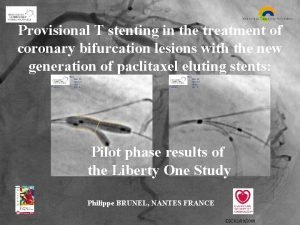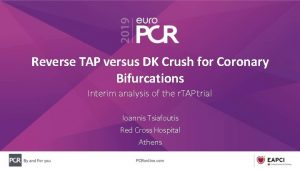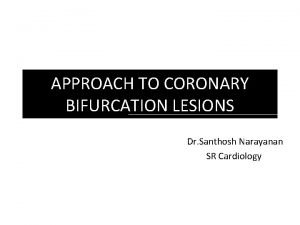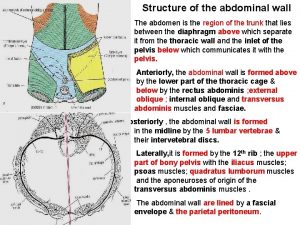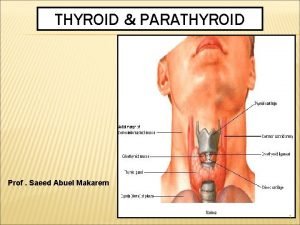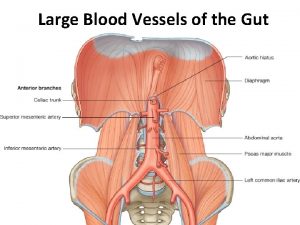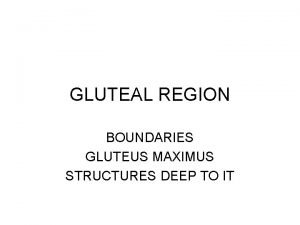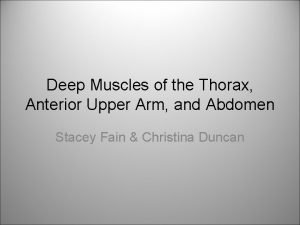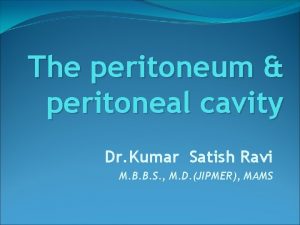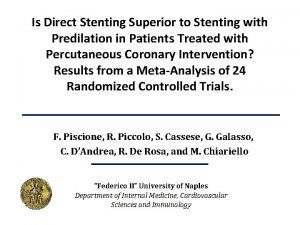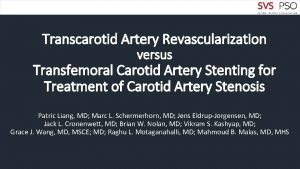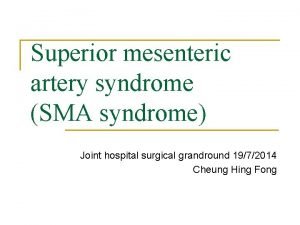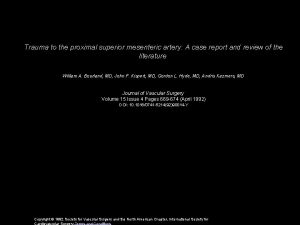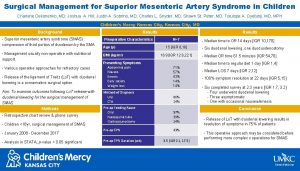Stenting of Superior Mesenteric Artery Chronic Total Occlusions












- Slides: 12

Stenting of Superior Mesenteric Artery Chronic Total Occlusions in Patients with Chronic Mesenteric Ischemia: Technical and Clinical Outcomes Grilli CJ, Fedele CR, Tahir OM, Velez JD, Wrigley C, Mc. Garry M, Ali MA, Agriantonis D, Kimbiris G, Garcia MJ, Leung DA Christiana Care Health System, Newark DE/US

Chronic Mesenteric Ischemia • Bowel manifestation of PAD • Atherosclerosis – hardening of arteries – plaque buildup blockage • Blockage of arteries supplying bowel – – pain after eating fear of food weight loss death

Chronic Mesenteric Ischemia • Bowel arteries – celiac artery – superior mesenteric artery – inferior mesenteric artery • Grading arterial blockages: – progressive atherosclerotic plaque – stenosis: 60 -99% blockage • amenable to endovascular stenting – occlusion: 100% blockage • usually managed surgically

Background CMI 1 SMA Occlusion SMA Stenosis Surgery Endovascular Stent Celiac/IMA stenosis 1. Sreenarasimhaiah J: Chronic Mesenteric Ischemia. Best Pract Res Clin Gastroenterol. 19(2): 283 -95, 2005 Stent SMA occlusion

Purpose • To investigate the feasibility and effectiveness of endovascular stenting of superior mesenteric artery occlusions (100% blockages) in patients with chronic mesenteric ischemia

Methods • 47 patients – 18 male, 29 female – mean age 73 yrs, range 44 -87 • All patients with clinical symptoms of CMI > 1 mo N % Postprandial pain 47 100 Weight loss (>5 lb) 33 70 Food fear 18 38 Early satiety 16 34 Diarrhea 21 45 Nausea/vomiting 20 43

72 y/o female, food fear, 45 lb weight loss

Results PROCEDURE SUCCESS • Achieved in 41/47 (87%) • 6 unsuccessful procedures: – 2 went on to bypass – 3 received celiac stents – 1 lost to follow-up

Results INITIAL SYMPTOM IMPROVEMENT • Symptom Improvement < 30 d – 4 point scale 1 significant improvement 2 partial improvement 3 no change 4 worsening of symptoms N=41

Results FOLLOW-UP BY ULTRASOUND • Primary patency (months): – 97% @ 12 – 75% @ 24 • Recurrent blockage of SMA: – 7 patients – all had repeat endovascular procedures • Secondary patency – 100% @ 12 – 97% @ 24

Results SYMPTOMS • Symptom-free – 100% @ 12 mo – 88% @ 24 mo

Conclusions • Endovascular stenting of complete blockages of the SMA is a safe and effective procedure – – minimally-invasive good technical success rate easily repeatable excellent clinical outcomes
 Mesenteric artery origin
Mesenteric artery origin Superior mesenteric artery
Superior mesenteric artery Inferior mesenteric artery
Inferior mesenteric artery Inverted provisional stenting
Inverted provisional stenting Tap bifurcation technique
Tap bifurcation technique Mini culotte stenting
Mini culotte stenting Thin
Thin Superior thyroid artery is a branch of
Superior thyroid artery is a branch of Thoracic aperture
Thoracic aperture Left and right gastric artery anastomosis
Left and right gastric artery anastomosis Gluteal region
Gluteal region Muscles of the upper arm
Muscles of the upper arm Peritoneum definition
Peritoneum definition



